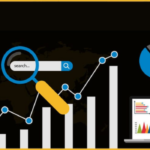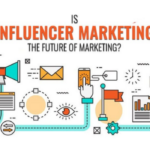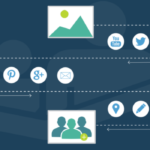Introduction
A. Defining Data-Driven Marketing: This section introduces the concept of data-driven marketing, highlighting the reliance on data analytics for strategic decision-making. It emphasizes how data analytics transforms traditional marketing approaches.
B. The Evolution of Marketing with Analytics: Here, the introduction discusses the shift from conventional marketing methods to data-driven strategies and its relevance in the contemporary digital landscape.
The Role of Data Analytics in Marketing
A. Extracting Actionable Insights: This part explains how data analytics plays a crucial role in extracting actionable insights from customer data. It delves into how these insights inform and shape marketing strategies.
B. Personalization and Targeting: Here, the role of analytics in personalizing marketing efforts and precisely targeting specific audience segments is discussed, showcasing the impact of data analytics on campaign effectiveness.
Implementing Data-Driven Campaigns
A. Campaign Planning with Analytics: This section explores how marketers can use data analytics to plan and execute effective marketing campaigns. It emphasizes the strategic role analytics plays in the planning phase.
B. Optimizing Content for Engagement: The focus here is on strategies for using analytics to optimize content, ensuring that it resonates with the target audience and maximizes engagement.
Customer Journey Analysis
A. Understanding the Customer Journey: This part explains how data analytics enables marketers to gain a deeper understanding of the customer journey, allowing for more targeted and effective marketing efforts.
B. Optimizing Touchpoints with Analytics: It delves into how analytics can help identify and enhance key touchpoints in the customer journey, enhancing the overall customer experience.
Measuring Marketing ROI with Analytics
A. Defining Key Metrics: This section explores essential marketing metrics that can be tracked using data analytics, emphasizing the importance of quantifiable measurements.
B. Interpreting Analytics for ROI: The focus here is on how marketers can interpret analytics data to measure the return on investment (ROI) of their marketing efforts, demonstrating the tangible impact of data analytics.
Segmentation and Targeting Strategies
A. Customer Segmentation with Analytics: This part explains the role of data-driven segmentation in refining marketing strategies, allowing for more targeted and personalized approaches.
B. Precision Targeting with Analytics: It explores the precision targeting capabilities that analytics offers, ensuring marketing messages reach the most relevant audience segments.
A/B Testing and Continuous Optimization
A. A/B Testing Best Practices: This section discusses best practices for A/B testing, showcasing how data analytics facilitates continuous optimization of marketing strategies.
B. Iterative Marketing Strategies: It explores the iterative process of refining marketing strategies based on data-driven insights gained from A/B testing, highlighting the adaptability offered by data analytics.
Challenges and Solutions in Data-Driven Marketing
A. Data Quality and Accuracy Challenges: This part addresses common challenges related to data quality and accuracy in marketing analytics, emphasizing the need for reliable data sources.
B. Overcoming Implementation Hurdles: It discusses strategies for overcoming obstacles in implementing data-driven marketing strategies, ensuring smooth integration and operation.
Emerging Trends in Data-Driven Marketing
A. Artificial Intelligence in Marketing: This section explores the influence of artificial intelligence in data-driven marketing, showcasing how advanced technologies are shaping the future.
B. The Role of Predictive Analytics: It discusses the impact of predictive analytics on future marketing trends, highlighting its potential in forecasting and proactive strategy development.
Case Studies: Successful Data-Driven Marketing Campaigns
A. Highlighting Successful Campaigns: This part showcases real-world examples of successful marketing campaigns driven by data analytics, providing tangible evidence of its effectiveness.
B. Lessons Learned from Case Studies: It extracts key lessons and takeaways from the highlighted case studies, offering practical insights for implementing successful data-driven campaigns.
Conclusion
A. Summarizing the Impact of Data-Driven Strategies: The conclusion summarizes the key points discussed in the blog post, highlighting the transformative impact of data analytics on marketing strategies.
B. Encouraging Adoption of Analytics in Marketing: It encourages readers to embrace data-driven approaches in their marketing strategies, emphasizing the continual evolution and growth offered by data analytics.















